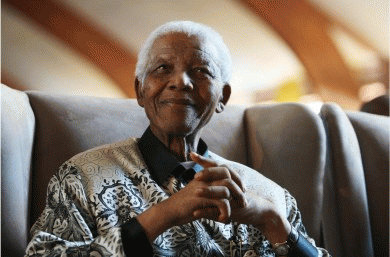Still, he was well used to deferential interviews and I was ticked off several times -- "You completely forgot what I said" and "I have already explained that matter to you." In brooking no criticism of the African National Congress (ANC), he revealed something of why millions of South Africans will mourn his passing but not his "legacy."
I had asked him why the pledges he and the ANC had given on his release from prison in 1990 had not been kept. The liberation government, Mandela had promised, would take over the apartheid economy, including the banks -- and "a change or modification of our views in this regard is inconceivable." Once in power, the party's official policy to end the impoverishment of most South Africans, the Reconstruction and Development Programme (RDP), was abandoned, with one of his ministers boasting that the ANC's politics were Thatcherite.
"You can put any label on it if you like," he replied. "... but, for this country, privatization is the fundamental policy."
"That's the opposite of what you said in 1994."
"You have to appreciate that every process incorporates a change."
Few ordinary South Africans were aware that this "process" had begun in high secrecy more than two years before Mandela's release when the ANC in exile had, in effect, done a deal with prominent members of the Afrikaaner elite at meetings in a stately home, Mells Park House, near Bath. The prime movers were the corporations that had underpinned apartheid.
Around the same time, Mandela was conducting his own secret negotiations. In 1982, he had been moved from Robben Island to Pollsmoor Prison, where he could receive and entertain people. The apartheid regime's aim was to split the ANC between the "moderates" they could "do business with" (Mandela, Thabo Mbeki and Oliver Tambo) and those in the frontline townships who led the United Democratic Front (UDF). On 5 July, 1989, Mandela was spirited out of prison to meet P.W. Botha, the white minority president known as the "Groot Krokodil" ('Big Crocodile'). Mandela was delighted that Botha poured the tea.
With democratic elections in 1994, racial apartheid was ended, and economic apartheid had a new face. During the 1980s, the Botha regime had offered black businessmen generous loans, allowing them to set up companies outside the Bantustans. A new black bourgeoisie emerged quickly, along with a rampant cronyism. ANC chieftains moved into mansions in "golf and country estates." As disparities between white and black narrowed, they widened between black and black.
The familiar refrain that the new wealth would "trickle down" and "create jobs" was lost in dodgy merger deals and "restructuring" that cost jobs. For foreign companies, a black face on the board often ensured that nothing had changed. In 2001, George Soros told the Davos Economic Forum, "South Africa is in the hands of international capital."
In the townships, people felt little change and were subjected to apartheid-era evictions; some expressed nostalgia for the "order" of the old regime. The post-apartheid achievements in de-segregating daily life in South Africa, including schools, were undercut by the extremes and corruption of a "neoliberalism" to which the ANC devoted itself. This led directly to state crimes such as the massacre of 34 miners at Marikana in 2012, which evoked the infamous Sharpeville massacre more than half a century earlier. Both had been protests about injustice.
Mandela, too, fostered crony relationships with wealthy whites from the corporate world, including those who had profited from apartheid. He saw this as part of "reconciliation." Perhaps he and his beloved ANC had been in struggle and exile for so long they were willing to accept and collude with the forces that had been the people's enemy.
There were those who genuinely wanted radical change, including a few in the South African Communist Party, but it was the powerful influence of mission Christianity that may have left the most indelible mark. White liberals at home and abroad warmed to this, often ignoring or welcoming Mandela's reluctance to spell out a coherent vision, as Amilcar Cabral and Pandit Nehru had done.
Ironically, Mandela seemed to change in retirement, alerting the world to the post 9/11 dangers of George W Bush and Tony Blair. His description of Blair as "Bush's foreign minister" was mischievously timed; Thabo Mbeki, his successor, was about to arrive in London to meet Blair. I wonder what he would make of the recent "pilgrimage" to his cell on Robben Island by Barack Obama, the unrelenting jailer of Guantanamo.
Mandela seemed unfailingly gracious. When my interview with him was over, he patted me on the arm as if to say I was forgiven for contradicting him. We walked to his silver Mercedes, which consumed his small grey head among a bevy of white men with huge arms and wires in their ears. One of them gave an order in Afrikaans and he was gone.
Watch John Pilger's film, Apartheid Did Not Die, below, or here.






